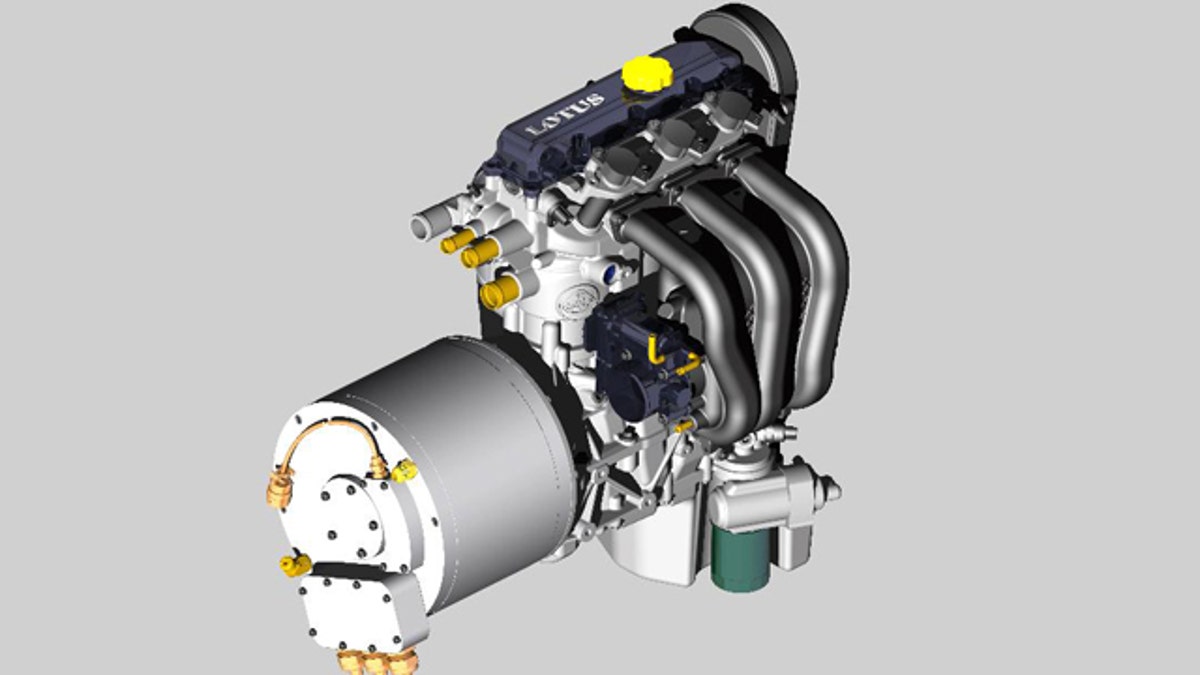
Lotus Engineering, the British sports car company’s automotive consultancy division, together with parts supplier Fagor Ederlan has announced today that it plans to develop its compact three-cylinder range extender engine for production.
Lotus will be handling the engineering side while Fagor Ederlan will be supplying it to other firms, possibly including the major automakers, all around the globe.
The three-cylinder 1.2-liter mill features aluminum "monoblock" construction, meaning the block, cylinder head, and even the exhaust manifold are integrated into a single casting. As a result, it weighs just 125 pounds.
It’s set to run at two speeds: 1,500 rpm, where it produces 20 horsepower (15 kilowatts) of electric power, and 3,500 rpm, for an output of 47 hp (35 kW) at the generator. It’s capable of handling gasoline, ethanol, and blends of the two and has been designed specifically for series hybrid vehicles.
We’ve already seen it in several concept vehicles including the Lotus Evora 414E Hybrid, where it was used to charge up lithium polymer batteries powering a pair of electric motors rated at 414 horsepower. This design is similar to the one used in the upcoming 2011 Chevrolet Volt, where a compact internal combustion engine--or hydrogen fuel cell--is used solely to charge batteries, which then power electric motors that drive the wheels.
One of the first major automakers to utilize the efficient Lotus engine could be Jaguar, which is already testing a range-extended XJ prototype dubbed the LimoGreen. The test vehicle is already returning a combined fuel economy of around 47 mpg and production could start as early as 2012.